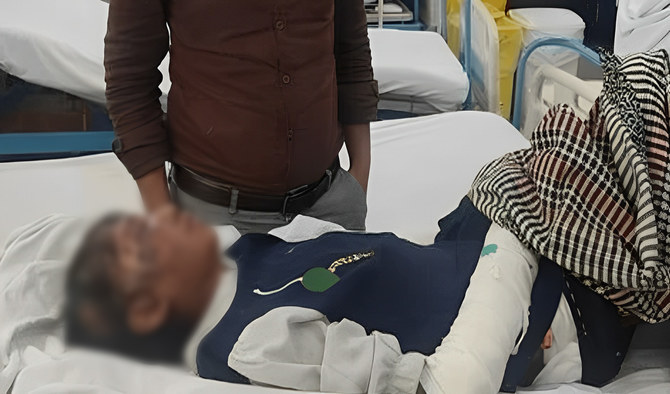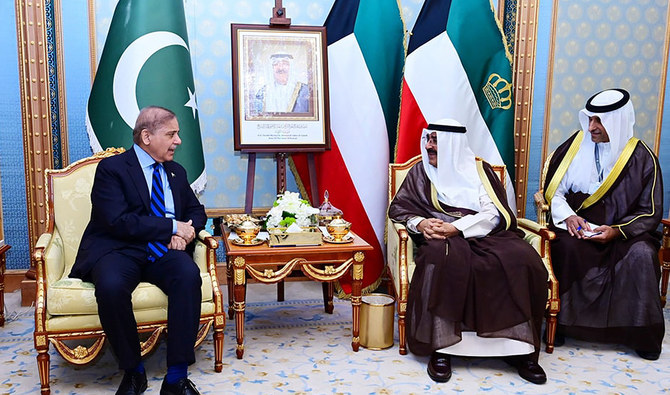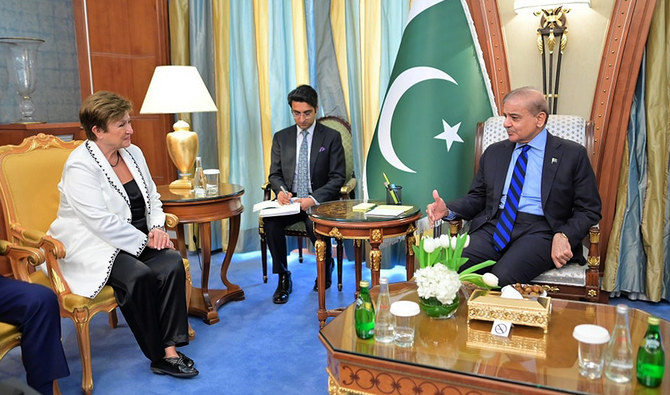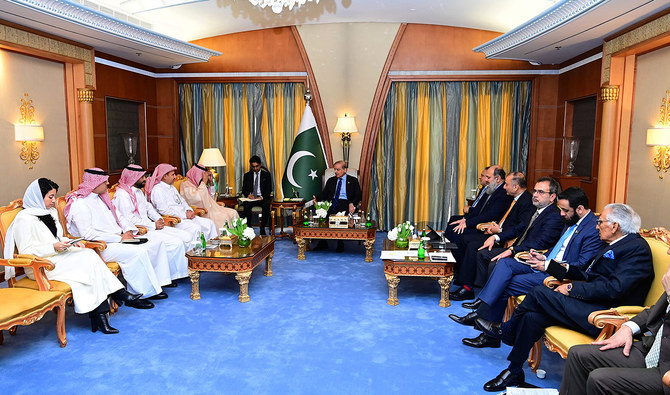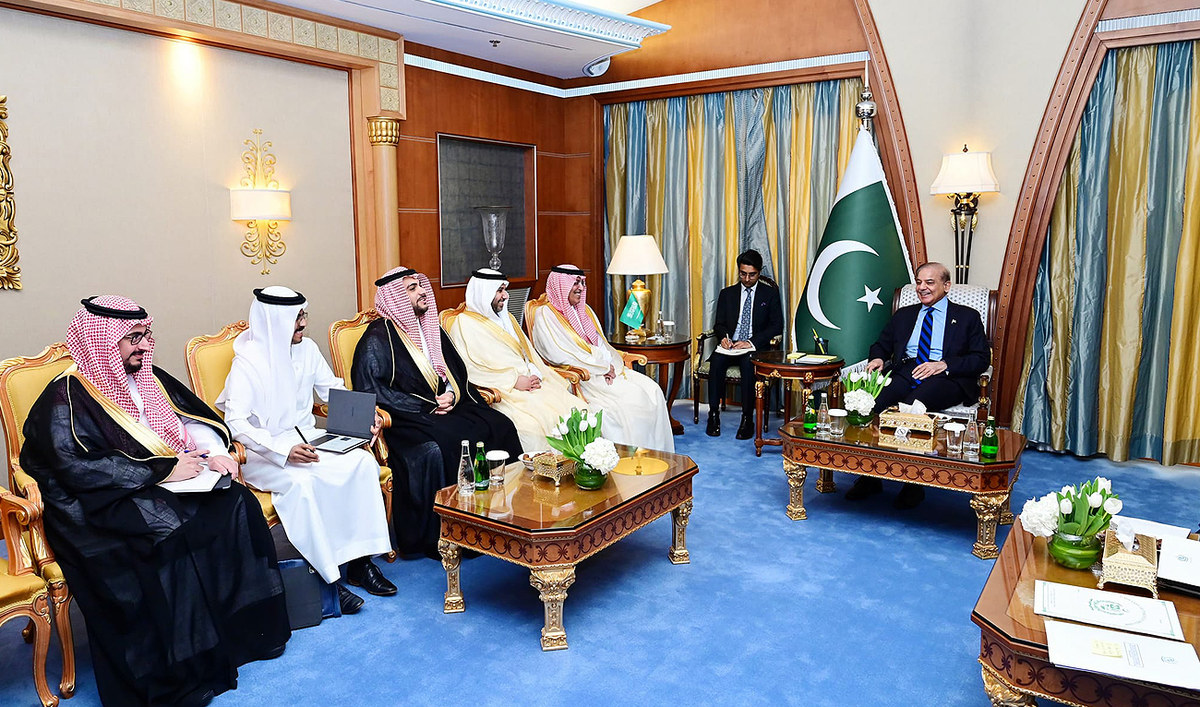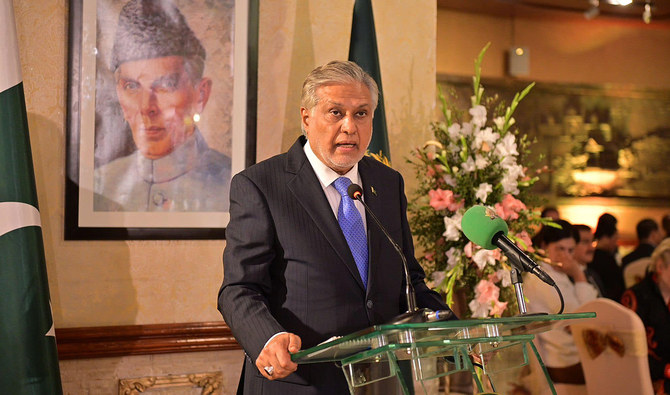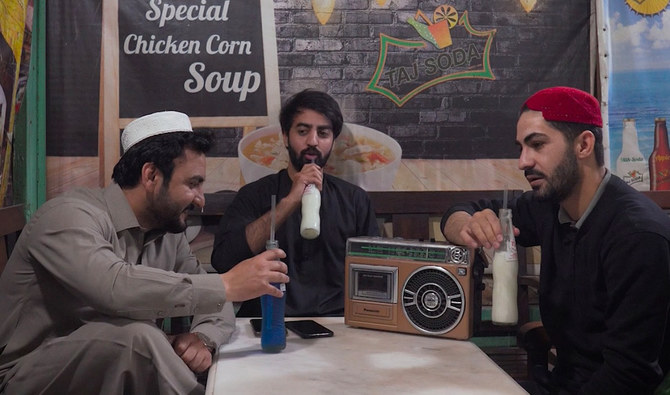LAHORE: Fourteen-year-old Rizwana was brought to a hospital in Pakistan’s eastern city of Lahore on July 24 with multiple head injuries, open wounds and broken bones across her body, and sepsis, a deadly immune response triggered by infection. She was unable to breathe on her own, or eat and speak.
Her family says the girl's condition was the culmination of six months of abuse and torture she was subjected to at the home of a civil judge in Islamabad where she worked as a maid, earning Rs10,000 ($34) a month. The case, for weeks the subject of outraged news headlines, has put the spotlight on Pakistan’s child labor and trafficking practices, often considered symptoms of poverty, with desperately poor families selling their children for work.
Child labor was banned in Pakistan in 2020 and it is illegal for children to work in factories and other industries. However, there are still about 12 million child workers in the country, according to the Society for the Protection of the Rights of the Child (SPARC). Many come from Pakistan’s poorest regions, either through middlemen, shadowy job placement agencies or by kidnapping, and work as domestic staff in private homes where monitoring working conditions or detecting abuse is difficult for authorities. Public attitudes towards child labor are also usually permissive in a society where even in the lowest rungs of the middle class, families often have at least one live-in servant.
But Rizwana’s case has captured the public imagination and unleashed widespread cries for justice. The main suspect, Somia Asism, the wife of civil judge Asim Hafeez, was arrested this week after initially getting bail.
Rizwana, meanwhile, was shifted from the ICU to a private ward on August 8, her ordeal far from over.
“This was the first time I started to believe that the likes of us can get justice as well,” Rizwana’s mother, Shameem Bibi, told Arab News at the Lahore General Hospital. “The poor are not human at all. Nobody treats us like human beings.”
Bibi, who has nine other children and whose husband is a daily wage laborer, said Asim had contacted her multiple times since the police complaint was registered, offering huge sums of money to drop the charges.
Lawyers for Asim, who has pleaded innocence, could not be reached for comment despite several attempts.
“She said, ‘You are never going to win even if you keep going [to courts] for the next twenty years, so take the money’,” Bibi said. “But I didn’t want money, I want justice for my daughter.”
The horrors Rizwana recalls are unspeakable, including being starved for five days in a row and her head being repeatedly beaten against the floor, apparently as punishment for behaviour that displeased her employers.
The mother said when she first saw Rizwana in Islamabad at the bus stop where Asim had come to hand her back to her family, she was missing teeth and her head was bandaged. Her face, covered in wounds and smashed in, was “difficult even to look at,” Bibi said.
At the time, the family did not know that an infection was slowly spreading through the girl's body because of untreated wounds all over her body.
“PROLONGED TORTURE”
A 12-member medical board led by Dr. Jodat Saleem, a renowned professor of anesthesia, ICU and pain management, was constituted last month to devise a treatment and recovery plan for Rizwana at Lahore’s General Hospital, with two plastic surgeons recently added to help with reconstructive surgery.
“There are signs of prolonged periods of torture, old wounds that were never allowed to heal,” Dr Saleem told Arab News, saying the child was subjected to “forced malnutrition” because of which her body stopped producing white blood cells and platelets, severely weakening her immune system.
Weeks-old fractures on her arms, legs and nasal bone and a wound on her back, among various other injuries, had nor been treated, leading to the development of an infection that spread to the child’s lungs and heart.
“The heart is better, but the lung problem continues, which is why we will need intermittent oxygen support,” Dr Saleem said.
A nasal bone fracture, a skull fracture, and torn lips also needed intervention:
“We had to close the wounds on her face first … Today [Wednesday] we are going to clean the head and back wounds, and she will undergo a second surgery.”
The “parameters of infection” were improving, the professor added, but Rizwana would likely need six reconstructive surgeries. Her immunity, he said, was “extremely compromised,” which made it very difficult to provide a timeline for her recovery process.
Lahore-based lawyer Faisal Jatt, who is representing Rizwana’s family, said CCTV footage of Asim putting the girl in her car to drive her to a bus station in Islamabad as well as of Rizwana waiting for her mother at the station on July 23, clearly showed her trauma.
“You can clearly see the bandages, signs of injuries, the child was unable to walk to the bus, the bus driver had to carry her in,” Jatt said.
Rizwana’s father Manga Khan said she was “battered and broken” when the family picked her up from the bus station.
“Her legs and arms were broken, her head was damaged, the skin on her head was torn,” he said.
The girl’s face had been covered with a cloth when the car dropped her off.
“When my wife removed the cloth and saw [her face], it was in a bad state.”
“NOT RARE”
Rizwana’s case, however harrowing, is hardly unique.
The brutal death of eight-year-old maid Zohra Shah in 2020 also caused outrage in Pakistan, prompting the government to change legislation governing child labor and ban the practice. In another case, a 10-year-old maid was tortured by her employers, a judge and his wife, in 2016 in a much-publicized case that saw the judge barred from legal practice. The three-year jail term imposed on him and his wife was later reduced to one year, however.
Perhaps the most publicized case of child labor in Pakistan was Iqbal Masih, sold by his parents at age 4 and shackled to a carpet loom for almost six years, earning one rupee a day. When Masih escaped, he owed his boss 13,000 rupees and went on to win international acclaim for highlighting the horrors of child labor in Pakistan. He was shot dead when he was 12 after receiving several death threats from people in the carpet industry angered by his comments about child labor.
Doctors and social workers said they hoped Rizwana would have a better future.
“We are making a long-term rehabilitation plan for her,” Dr Al Fareed Zafar, another senior doctor treating Rizwana, told reporters this week. “We need to give her education, teach her some skills so that she can go on and live her own life, a better life.”
Ehtsham Arshad, an officer with Punjab’s Child Protection and Welfare Bureau which has legal custody of Rizwana until she is discharged from hospital, said she would have to undergo trauma counseling and therapy. The plan was to move her to a district office in Faisalabad for mental and physical rehabilitation, then to Sargodha, her hometown, where the government would pay for her education.
The Bureau has rescued 78,753 children from abuse, exploitation, and being driven to the streets without a legal guardian since it was established in 2005.
“Each month we see around 200-300 children in need of rescue in Lahore alone, half of these cases involve child labor abuse,” Arshad said. “This [Rizwana's] is a very publicized but unfortunately not a rare case of violence against child laborers.”
Still, the girl's mother is adamant she will get justice for her daughter.
“God is with the poor,” Bibi said. “My god Inshallah will help me. She [Asim] will be punished.”



